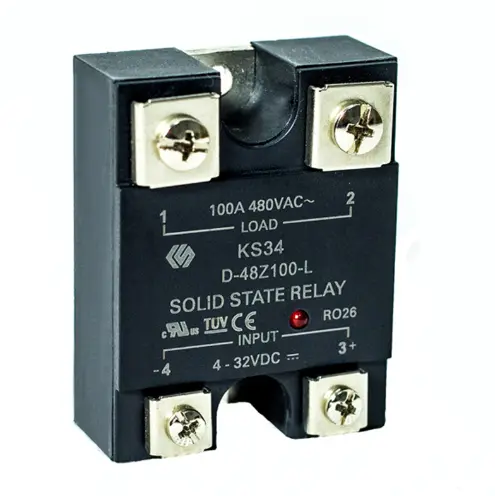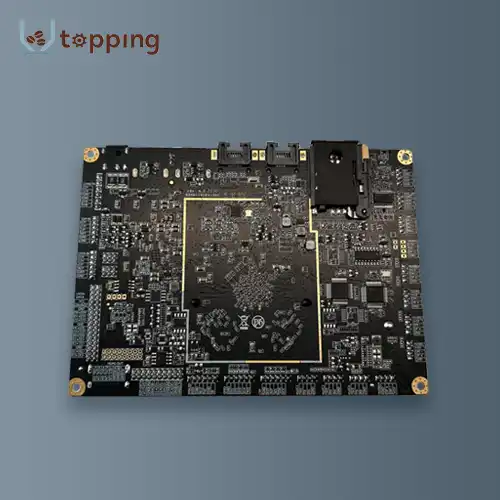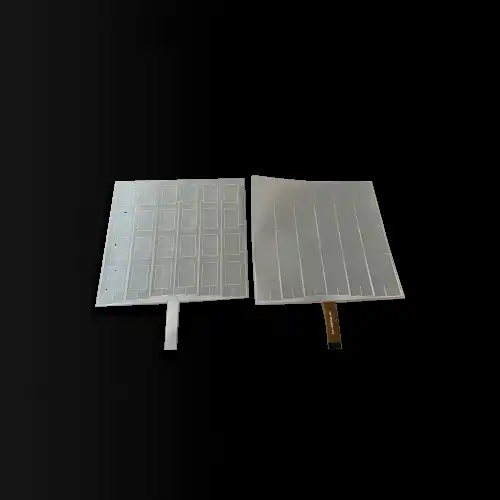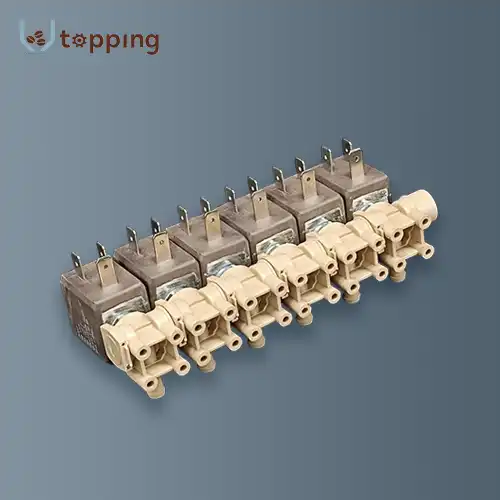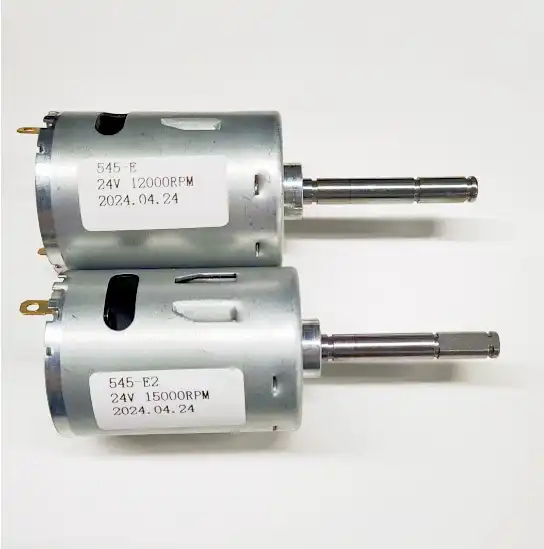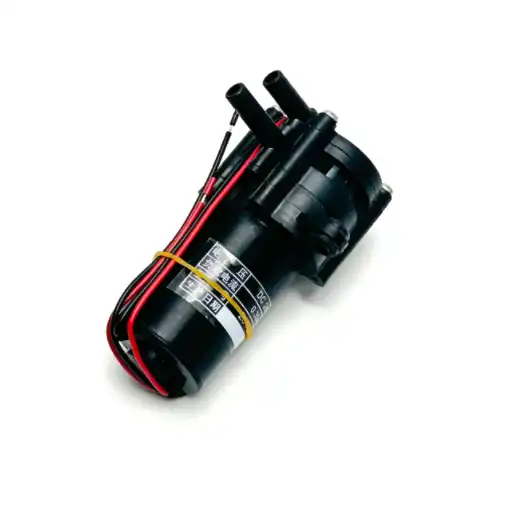How Much Torque Is Needed for a Coffee Grinder?
2024-07-22 14:34:02
When selecting a coffee grinder motor, one key aspect often overlooked is the torque required for optimal performance. Torque, the force that causes rotation, plays a significant role in how efficiently a coffee grinder can break down coffee beans. Higher torque ensures consistent grind size and reduces the strain on the grinder's motor, leading to a longer lifespan and better coffee extraction. In this blog, we will explore various aspects of coffee grinder motors, focusing on the torque needed for different types of grinders, motor efficiency, and how to choose the right motor for your coffee grinder.
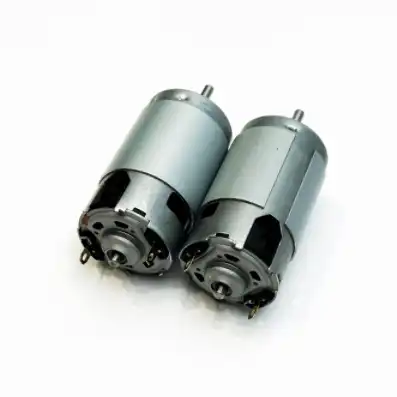
Why Is Torque Important in a Coffee Grinder Motor?
Torque is crucial in a coffee grinder motor because it directly impacts the grind consistency and the wear and tear on the motor. Higher torque can handle tougher coffee beans and larger quantities without slowing down or overheating, ensuring a uniform grind and prolonged motor life.
Understanding Torque and Its Impact
Torque, measured in Newton-meters (Nm), is the rotational equivalent of linear force. For a coffee grinder, sufficient torque means the motor can easily turn the grinding burrs or blades through the resistance of coffee beans. A motor with inadequate torque may struggle, leading to inconsistent grinds and potential damage over time.
The Role of Torque in Grind Consistency
Grind consistency is vital for coffee brewing, affecting flavor extraction. Inconsistent grind sizes lead to uneven extraction, resulting in a bitter or sour taste. High torque motors maintain a steady grinding speed even under load, ensuring each coffee bean is uniformly ground. This consistency is essential for espresso machines, where precise grind size is critical.
Heat and Motor Longevity
High torque motors generate less heat during operation because they don't have to work as hard to turn the grinder. Excessive heat can deteriorate motor components, reducing their lifespan. Therefore, a motor with adequate torque not only grinds efficiently but also enhances the durability of the coffee grinder.
How Do You Determine the Right Motor Torque for Your Coffee Grinder?
The type of grinder you have, the quantity of coffee beans you intend to grind, and the grind size you prefer are all important considerations when selecting the coffee grinder motor torque for your coffee grinder.
Blade Grinders: Types of Coffee Grinders and Torque Requirements Regularly, sharp edge processors don't need as much force as burr processors. Notwithstanding, higher force can further develop execution by guaranteeing the cutting edges hack through beans all the more really.
Grinder Burrs: To evenly crush beans, these grinders, particularly those with conical and flat burrs, require more torque. They get a lot out of motors with more torque because this makes the grind size more consistent.
Ascertaining Force Needs
To decide the force required, consider the power rating of the engine (in watts) and the speed at which it works (in RPM). The equation for force (T) is:
[T (Nm) = frac Power (W) Speed (RPM) times 9.5488] An example of this would be a motor with a torque of:
Matching Torque to Grinding Volume and Bean Hardness The volume of the beans and their hardness can also influence the required torque. [T = frac1002000 x 9.5488 = 0.477 text Nm] Compared to grinding smaller quantities of softer beans, grinding a large quantity of hard, dense beans will require more torque. Clients who as often as possible drudgery enormous clumps ought to pick processors with higher force appraisals.
What Are the Benefits of High Torque Motors in Coffee Grinders?
High torque motors bring a range of benefits to coffee grinder motor, significantly impacting performance, user experience, and the quality of brewed coffee. Here’s an expanded look at these advantages:
Enhanced Performance and Reliability
Consistent Grinding Capability: High torque motors excel in maintaining consistent grinding speeds, regardless of bean hardness or grind size setting. This consistency ensures that each batch of coffee grounds is uniform, crucial for achieving balanced extraction and optimal flavor.
Reduced Grinding Time: Grinders with high torque motors can process beans more efficiently, reducing the time required to achieve the desired grind. This efficiency is particularly beneficial in commercial settings where high throughput is essential.
Less Motor Strain: With ample torque, the motor operates smoothly without straining under load. This not only extends the motor's lifespan but also minimizes wear and tear on internal components, ensuring long-term reliability.
Better User Experience
Quieter Operation: High torque motors tend to operate more quietly due to their ability to handle loads without excessive vibration or noise. This quieter operation enhances the overall user experience, making the grinding process less disruptive in both home and commercial environments.
Reduced Vibration: Less vibration during operation not only contributes to quieter performance but also enhances grinder stability. Reduced vibration means fewer chances of the grinder moving or shifting during use, which is particularly important for home baristas seeking precision in their brewing setups.
Longer Lifespan: The robust design of high torque motors typically results in a longer operational lifespan. This durability translates to better value for money over time, as the grinder requires less frequent maintenance and replacement of parts.
Improved Coffee Quality
Uniform Grind Size: High torque motors facilitate more consistent particle size distribution in ground coffee. This uniformity ensures that all coffee particles are extracted evenly during brewing, leading to a more balanced and flavorful cup of coffee. It is especially beneficial for espresso preparation, where precise grind size is critical.
Enhanced Extraction Efficiency: By producing uniform grinds, high torque motors optimize coffee extraction. This efficiency maximizes the extraction of flavors and aromas from the coffee grounds, resulting in a richer and more satisfying coffee experience.
Versatility in Brewing Methods: Grinders with high torque motors are versatile enough to accommodate various brewing methods, from espresso to pour-over and French press. This versatility allows coffee enthusiasts to explore different brewing techniques without compromising on grind quality.
Conclusion
Selecting a coffee grinder motor with the right torque is essential for achieving consistent grind sizes, ensuring motor longevity, and improving the overall quality of your coffee. High torque motors offer enhanced performance, reliability, and user experience, making them a valuable investment for both home and commercial coffee brewing. By understanding the importance of torque and how to determine the right torque for your needs, you can make an informed decision and enjoy the best possible coffee grinding experience.
References
1. [Coffee Grinders - Torque and Power Considerations](https://www.wholelattelove.com/)
2. [Understanding Motor Torque and Power](https://www.engineeringtoolbox.com/)
3. [How to Choose the Right Coffee Grinder](https://www.consumerreports.org/)
4. [The Importance of Grind Consistency in Coffee](https://www.homegrounds.co/)
5. [High Torque Motors and Their Benefits](https://www.electricaltechnology.org/)
6. [Grind Size and Coffee Extraction](https://www.perfectdailygrind.com/)
7. [The Science of Coffee Grinding](https://www.sciencedirect.com/)
8. [Choosing the Best Motor for Your Coffee Grinder](https://www.brewingwise.com/)
9. [Commercial Coffee Grinders: What to Look For](https://www.espressooutlet.net/)
10. [Impact of Heat on Motor Longevity](https://www.electronics-cooling.com/)
Send Inquiry
Related Industry Knowledge
- How to clean coffee bean hopper
- How do you make coffee with a sieve?
- How Often Should You Replace Coffee Vending Machine Spare Parts?
- How Much Torque Is Needed for a Coffee Grinder?
- What Factors Should You Consider When Choosing a Coffee Cup Dispenser?
- How Does a Vending Machine Cup Dispenser Work?
- Coffee Sieve Sizes
- Why is Vending Coffee Machine Water Tank made of Food-grade plastic?
- What measures does Vending Machine Camera take in terms of data security?
- What is a Valve Coffee Machine?

.webp)
.webp)
